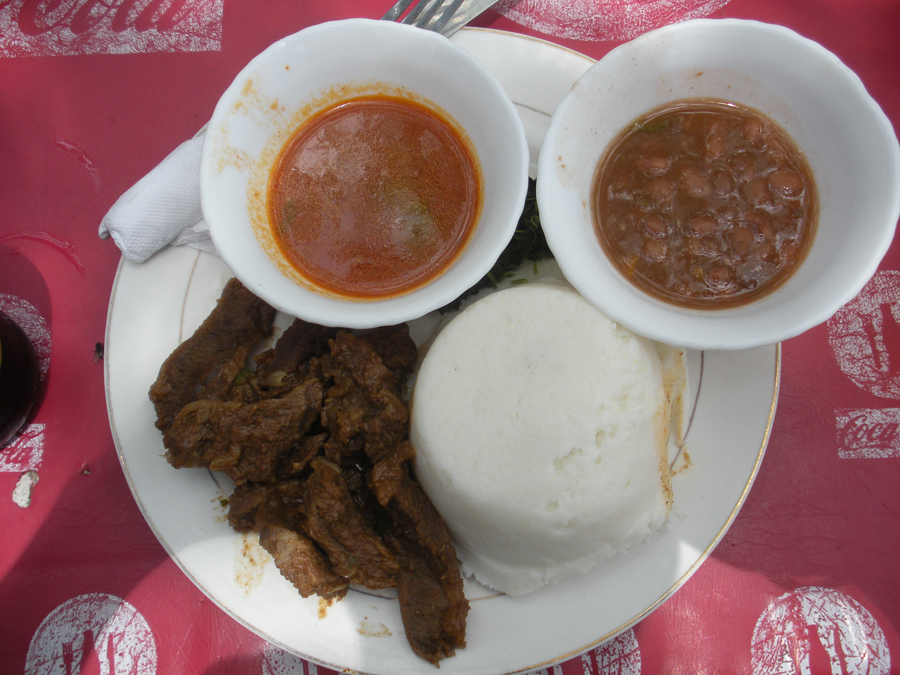Customs and Cuisine of the Maasai

Customs and Cuisine of Kenya
The Maasai heavily depend on cattle for nutrition. The traditional Maasai diet consists of six basic foods: milk, meat, fat, blood, honey, and tree bark. Both fresh and curdled milk are drunk. Fresh milk is drunk in a calabash (gourd) and is sometimes mixed with fresh cattle blood. Blood is also boiled and used in cooking or drinks, accompanied with ugali (monono). Most of the meat dishes are fried or roasted then mixed with blood and ugali. Honey is obtained from the Torrobo tribe and is a prime ingredient in mead, a fermented beverage that only elders may drink.
Dining Etiquette:
- Before entering a Kenyan home, you should take off your shoes.
- Bring a small gift but it need not be expensive. Practical gifts are preferred such as pastries, flowers or sweets. In rural areas, sugar or tea is commonly given. Do not bring alcohol unless you know your host drinks.
- Guests are expected to wash their hands before and after the meal.
- The host will show you to your seat and the most honored position will be next to the host. When seated, your toes and feet should not be pointing toward the food or other diners.
- The honored guest is served first, then the oldest male, the rest of the men, children, and then finally the women. Do not begin to eat or drink until the oldest man has been served and has started eating.
- When eating with your hands, most Kenyans eat only with their right hand. If offered a spoon or fork, hold them in your right hand.
- Do not put your left hand on bowls or serving pieces. When one communal bowl is present, eat from the part of the bowl or plate in front of you.
- After a meal, a small burp signifies satisfaction.
- Beverages are not served with meals since Kenyans believe it is impolite to eat and drink at the same time.
- Tea and coffee are generally served after a meal and should be accepted even if you only take a few sips. Your cup will always be refilled if it is less than half full.
- Typically the host will give a toast. If you are the honored guest, you are not expected to make a statement or toast, but should offer a small compliment.
- Do not leave the table until invited to do so.
- If you move from one area to another in a home, always allow more senior members of your party to enter the room ahead of you.
Sources:
The Kakenya Center | Compiled by Marcie Christensen
View Recipes from Kenya
Kenya
